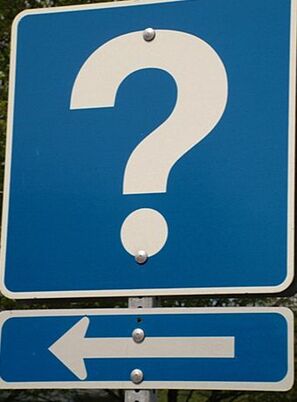At first my investigation was scattered. I didn’t have a clue how to approach this enormous task, so I just kept reading whatever looked interesting. In addition to bulldozing my way through much of C. S. Lewis’s fiction and non-fiction, I devoured a chaotic array of books from the library and bookstore of the church with the warm congregation and uplifting worship music. And I began immersing myself in my new study Bible, a fat volume with overview essays, charts, and maps as well as endless footnotes explaining what various verses mean to our lives today.
I read all these things and started to see my ideas as pretty weak – and pretty childish, based as they were on a spurious combination of fantasy and wishful thinking. And I started to gain some confidence that my mother’s faith could, after all, be true, that there really might be a heaven and that we might actually all be together again someday. Maybe I could even bank on it.
But I couldn’t be 100% certain, could I?
And so I worried, intermittently but intensely, that it was all a myth some ancient leaders had cooked up to keep the masses in line. Or, as some of my fellow feminists would have said, a myth cooked up by men to keep their little women barefoot and pregnant and home.
Which meant that I had yet to set the whole question of atheism permanently aside. A distressing realization: I had toyed with its negative brand of absolutism for too many years already. And as someone had said, you can’t prove a negative: Even if you know 99% of everything there is to know in the universe, how do you know that God isn’t in that last 1%?
Besides, atheism no longer had any appeal for me. I figured that marrying Dave had put the kibosh on my last remaining need for a godless universe devoid of moral absolutes.
But at first, all I had to prove God’s existence was C. S. Lewis’s argument about our instinctive understanding of a universal moral law – what some people refer to as the “argument from conscience.” It was a good argument, but I couldn’t accept it as conclusive evidence.
I kept going around in circles.
Did science eliminate any need for a Creator?
Did near-death experiences render atheism obsolete?
Might all religions be true, in their own way?
Could it be that my home-grown philosophy was right after all?
And so I returned to Square One.
It reminded me of my single days, when I would spend hours wondering whether some guy was telling me the truth or not, weighing and re-weighing the evidence, agonizing over what to do about each of three or four possibilities. I still hadn’t learned to think linearly, it seemed.
(Was my circular thinking evidence that the eastern thought was true, after all?)
And then somewhere along the line I read that, centuries earlier, the world’s foremost philosophers had narrowed all these big questions down to the three biggest questions – the only ones that really matter:
1. Where did you come from?
2. What are you doing here?
3. Where are you going?
I had at least two answers: Science had solved #1 (from prehistoric chemical soup) and Betty [Friedan] had taken care of #2 (to become independently wealthy, protect my dignity and promote the sisterhood).
So #3 was the only outstanding issue.
Where are you going?
I’d once sidestepped this question by telling myself that writing the Great American Novel would assure my immortality; it would buy me a place in the hearts and minds of the intellectual elite for centuries to come, even if it didn’t reveal where I would be during this posthumous adulation.
But now my final destination had become enormously important, related as it was to the final destination of everyone I’d ever loved.
Especially my mom.
--From Heaven Without Her, pages 97-99

 RSS Feed
RSS Feed